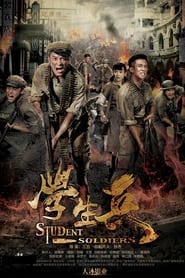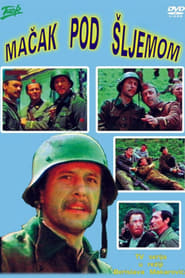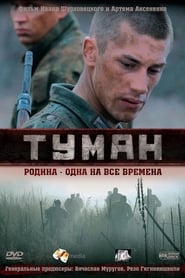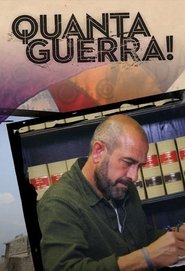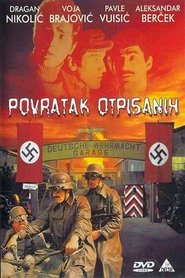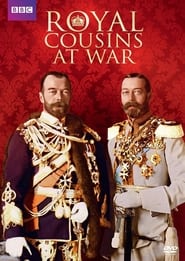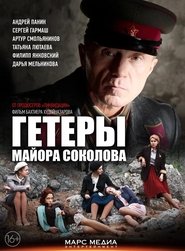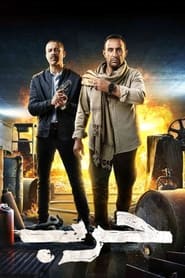War Politics TV Series - Page 87
-
Images from Fascism: All the Duce's Men
1982
1982 documentary about the Italian Fascist regime by Nicola Caracciolo -
Making History
2021
-
1914-1945: They Made History
2016
star 7Between 1914 and 1945, two major conflicts engulfed the planet. Among the combatants of the First World War, eight men would play a decisive role in the next one. -
Betrayal of a Nation
2016
Betrayal of a Nation
2016
star 10It is an Emirati drama that was shown in Ramadan 2016 taken from the novel "Ritaj" by the novelist Hamad Al Hammadi and produced by Abu Dhabi Media Company. The series talks about the organization of the Muslim Brotherhood and how it worked secretly within the joints of the state for many years. It also touches on the history of the organization and dives deep into the social life of its members, indicating the ideas they hold and the principles on which they are based. -
Student Soldiers
2017
Student Soldiers
2017
In 1944 when Japan attacked Guangxi for the second time. It tells the story of passionate patriotic students Mo Jiajun and Du Shaowei who secretly went to the front to help in the war and began to change their fate and consciousness. -
Cat Under a Helmet
1978
Cat Under a Helmet
1978
A tragicomic tale of lumberjack who joined the partisans during WW2. As a corporal, he successfully and courageously fulfilled the combat tasks with his partisan battalion. The commander sends him on a special assignment. -
Fog
2010
Fog
2010
star 4.5A detachment of young fighters of the Russian Army breaks away from the main formation during a march, in order to shorten the path, runs across, but gets into a fog that takes him back to the past, during the Great Patriotic War. The guys who saw the war only in the movies fall into the clutches of the ruthless events of that time. Everything is on the edge: bravery, fear, love, hate, life, death. And there's no time to ask questions. Live, fight for the Motherland – it is one for all time. -
Quanta guerra!
2022
Quanta guerra!
2022
-
Al-Bawasil
2000
Al-Bawasil
2000
The beginning of this part was from the end point of the series Al-Kawasir by beating Shaqif and his league. And the son of Al-Wahaj was heading to the statue of Osama, he was kidnapped by the gang of Jandaa, who asks for gold Ibn Al-Alaqam ransom for his release, but Laith son of Osama resorts to the trick and concludes his grandfather after a battle with Jandaa becomes then paralyzed after being stabbed by Arandas, which is one of the four valiant and this is what provokes the curse of Jandaa on the son of Al-Wahaj sends his son Al-Qaqaa, a strong knight to take revenge on them, where he resorts to the tribe of Ibn Al-Wahaj through the trick to host him among them and then begins to liquidate the knights One by one, the tribe injures the Bashiq and kills Laith and the son of the Romans, whom he suspected but no one believed until the matter of the Qa'qa' was finally revealed and he was killed by the Arandas in a duel between them -
La patrulla del desierto
1993
The life of a group of men who patrolled the Atacama Desert during the Saltpeter War. -
Blade of Faith
2025
Blade of Faith
2025
In 1937 Tianjin, after the city falls under occupation, Ye Qingxuan joins the Anti-Traitor Resistance Group to avenge his mentor. Together, they eliminate collaborators, uncover Japanese spy schemes, and fight to sabotage enemy operations in a thrilling tale of courage and resistance. -
Return of the Written Off
1978
star 7.3In Summer of 1944 Prle and Tihi, young yet veteran resistance fighters, together with Joca, old and moody radio-operator, are sent by Partisans to Belgrade, the Yugoslav capital still under Nazi occupation. As victorious Partisan forces approach, Prle, Tihi and Joca must continue their underground work in order to prepare the city for liberation. -
风雨龙虎山 (2007)
2007
风雨龙虎山 (2007)
2007
-
Royal Cousins at War
2014
Royal Cousins at War
2014
star 6.3At the time World War I broke out, the King of England, the Czar of Russia, and the Kaiser of Germany were first cousins. This two-part series looks at the role played by Tsar Nicholas II of Russia, Kaiser Wilhelm II of Germany and King George V of England, and their relationships with each other, in the outbreak of war. Mismanaging their countries and mishandling foreign policy, they failed to adapt to the forces of nationalism and democracy, and so brought tumbling down their own ideal of a Europe governed by the descendants of Queen Victoria. While it was war that delivered the final blow, this fascinating series shows how the problems had set in much earlier. A two part miniseries. -
乌龙山剿匪记
1987
-
Major Sokolov's Hetaerae
2014
September 1939. The beginning of the Second World War. Major Sokolov of Soviet intelligence arrives in Crimea. His main goal is to identify the agent network of the terrorist anti–Soviet organization ROVS. The head of the counterintelligence of the Russian General Military Union is Staff Captain Semenov, alias Krest. -
Koombiyo
2017
Koombiyo
2017
star 8.335 year old bachelor Jehan and his partner in crime Priyantha try to exploit the loopholes in the law in order to make a living.Koombiyo tells the story of Jehan Fernando, who has neither family nor home and lives alone in an abandoned building complex in Colombo. He accidentally meets Hiruni and Priyantha Mahaulpathagama in a public bus when Priyantha is coming to Colombo on his search for a job. Jehan convinces Priyantha to abandon the job he is going for and join Jehan's company Purchasing Lanka instead, which delivers retail items to customers claiming they are from supermarkets when in reality they are bought from the local flea markets. Priyantha starts living with Jehan while being a partner in his business and they quickly become good friends. -
War
2023
War
2023
star 4The events revolve around a member of an extremist terrorist group called Al Zafer, who is trying to carry out a number of terrorist operations in Egypt, but he gets pursued by the security services. -
Baldr Force EXE
2006
Baldr Force EXE
2006
star 6The network covers the whole globe, and the development of the information network reaches its acme. In this age, there are two developed worlds; the "real world" and "wired" — the virtual network world. Souma Tooru belongs to a group of hackers called Steppen Wolf, surfing the network freely. On their last job they attacked the database of the UN forces. During this attack, he loses Nonomura Yuuya, his friend and team leader. Tooru is arrested by the army. In exchange for letting him free, he has to work for an anti-hacker organization, the first squad of the UN Security Force Information Administration Bureau. Working for them, Tooru searches for the person that killed his friend, while the other members also have their own reason to fight. The three-way battles between the terrorist group, the security enterprise, and the army, continue from day to day. And when several seemingly unconnected events occur during these skirmishes, it becomes quite clear that something big is afoot.




